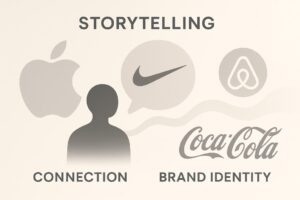When startups think about growth, they often rush toward performance marketing, SEO hacks, and viral content — but rarely do they pause to study the timeless art of persuasion.
Yet, few people in advertising history have mastered that art better than David Ogilvy, the man widely known as “The Father of Advertising.”
For modern copywriters — especially those working with startups — Ogilvy’s lessons are more than old-school wisdom. They’re a playbook for clarity, conversion, and creativity in a crowded digital world.
1. Clarity Always Beats Cleverness
Ogilvy believed that great advertising isn’t about sounding smart — it’s about being clear.
In his words: “The consumer isn’t a moron, she’s your wife.”
For startup copywriters, that means your messaging should explain, not impress. Your homepage, product description, or ad copy should answer three questions instantly:
- What problem do you solve?
- How do you solve it better than anyone else?
- Why should your audience trust you?
So, before publishing any copy, ask: “Would a stranger understand this in 10 seconds?” If not, simplify.
2. Research Is the Real Creative Advantage
Ogilvy’s process started with research, not brainstorming. He believed that the best ideas come from deep understanding — of the product, the market, and the customer.
For startups, this means digging into:
- Customer feedback — What words do your users actually use?
- Competitor language — What are others promising, and where can you differentiate?
- Data-driven insight — What messaging converts, and what falls flat?
Great startup copywriters don’t just write — they investigate.
As Ogilvy said: “
If you’re trying to persuade people to do something, use their language, the language they use every day.”
3. Write Headlines That Sell (Not Just Sound Good)
Ogilvy famously wrote: “
On average, five times as many people read the headline as read the body copy.”
Your headline decides whether your audience will read, click, or scroll away.
For startups, where attention spans are short, this rule is gold.
Use headlines that promise a clear benefit and spark curiosity. For example:
- Instead of: “The Future of Productivity”
Try: “Double Your Team’s Output Without Hiring Anyone New.”
✅ Formula: [Benefit] + [Timeframe or Emotion] + [Proof or Hook]
4. Sell the Transformation, Not the Feature
Ogilvy knew people don’t buy products — they buy better versions of themselves.
Startup copywriters should focus on transformation, not functionality.
Example:
❌ “Our app tracks your expenses automatically.”
✅ “Finally feel in control of your money — without the spreadsheets.”
By shifting from what your product does to how it makes people feel, your message connects emotionally — which is where persuasion truly happens.
5. Test Relentlessly, Then Trust the Data
Even in the 1960s, Ogilvy was obsessed with testing. He ran split tests on headlines, copy length, and even images.
He understood that creative intuition must be proven by performance.
Startups have a huge advantage here: digital tools make testing easy.
Use A/B tests on:
- Landing page headlines
- Call-to-action buttons
- Email subject lines
Your goal isn’t to write perfectly the first time — it’s to iterate intelligently until the data tells you what works.
6. Tell Stories That Make Your Brand Human
Ogilvy’s ads often told small stories — about people, products, and moments.
He knew that stories make brands memorable.
For startups, storytelling bridges the gap between what you do and why it matters.
It builds emotional equity faster than any performance ad can.
So, don’t just say “We offer AI-driven marketing solutions.”
Tell the story of how a small business used your platform to turn one campaign into a global success.
Let’s Recap the Lessons
David Ogilvy didn’t write for algorithms — he wrote for humans.
And that’s exactly why his lessons still matter in the AI-driven era.
Startup copywriters today can use his principles to:
- Write clearer, faster-converting landing pages
- Create ads that connect emotionally
- Build brands people actually remember
Because while tools, platforms, and trends will change, human persuasion never does.

